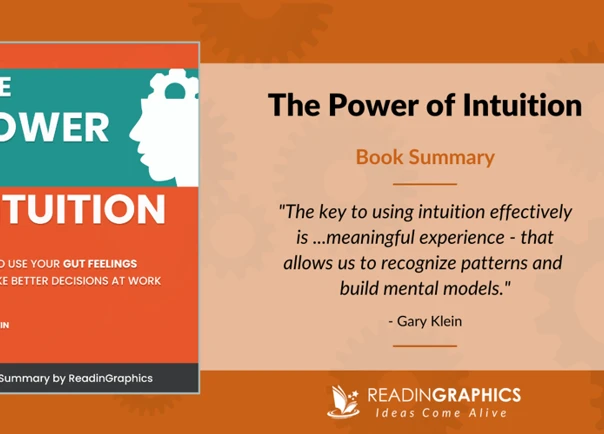Have you ever had a gut feeling or a hunch that turned out to be right? That inner voice that seems to guide you in making decisions or solving problems? That is intuition, a powerful tool that we all possess. In this article, we will delve into the fascinating world of intuition and explore the ways in which it can be harnessed to unlock your inner guide. From understanding what intuition truly is to developing and strengthening your intuitive abilities, we will uncover the hidden potential of intuition in problem-solving. So, buckle up and get ready to tap into the power of your intuition to overcome challenges and make better decisions.
Contents
- What is Intuition?
- How Does Intuition Work?
- The Benefits of Intuition in Problem-Solving
- Ways to Cultivate and Strengthen Intuition
- Intuition in Action: Real-Life Examples
- Intuition vs. Rational Thinking: Finding the Balance
- Trusting Your Intuition: Overcoming Doubt and Fear
- Conclusion
-
Frequently Asked Questions
- 1. What role does intuition play in decision-making?
- 2. Can intuition be developed and strengthened?
- 3. How can I differentiate between intuition and fear-based thoughts?
- 4. Can intuition be relied upon solely for decision-making?
- 5. Are there any techniques to enhance intuitive abilities?
- 6. Can intuition be trusted over expert advice or analysis?
- 7. Is intuition the same as a gut feeling?
- 8. Can intuition help in solving complex problems?
- 9. Can I enhance my intuitive abilities through dream analysis?
- 10. Can intuition be developed in professional settings, such as business?
- References
What is Intuition?
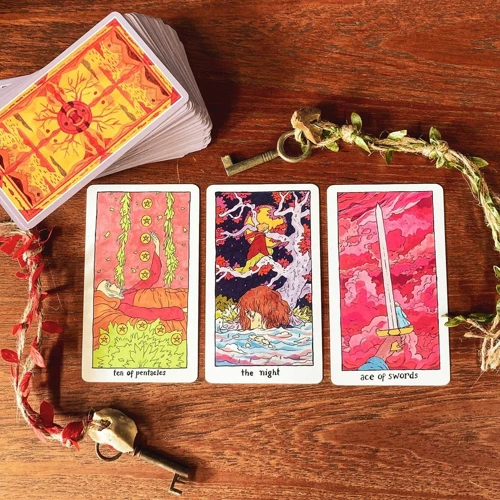
Intuition, often described as a subtle inner voice or a deep knowing, is the ability to understand or sense something without conscious reasoning. It is a form of knowledge that arises from within, allowing us to tap into insights and wisdom that may elude our logical mind. Intuition is not limited to psychic abilities or spiritual practices, but rather a natural human capability that we can all access. With no scientific explanation for how intuition works, it remains a mysterious and often misunderstood phenomenon. However, countless individuals have experienced the power of intuitive guidance in their lives, leading to remarkable discoveries, creative breakthroughs, and even life-saving decisions. So, let’s embark on this journey to explore the depths of intuition and unlock its potential in problem-solving.
1.1 Definition of intuition
The definition of intuition can vary depending on the context, but it generally refers to an instinctive understanding or knowing that goes beyond logical reasoning. Intuition is often described as a “gut feeling” or an inner voice that guides our thoughts and actions. It is an innate ability we all possess, although its strength and accessibility may vary from person to person. Intuition can manifest in different ways, such as sudden insights, intuitive flashes, or a sense of certainty without tangible evidence. While intuition is commonly associated with decision-making and problem-solving, its scope extends beyond these domains. It can also play a role in creativity, innovation, and personal growth. Some people may even experience intuition as a spiritual connection or an intuitive knowing that transcends the physical senses. To truly understand the depth and potential of intuition, it is essential to explore its various dimensions and embrace its value in our lives. (Source: science-intuition-gut-feeling)
1.2 Importance of intuition in problem-solving
The importance of intuition in problem-solving cannot be overstated. Intuition acts as a guiding force that helps us navigate complex situations and make decisions with clarity and confidence. While rational thinking and logical analysis certainly have their place in problem-solving, intuition brings a different dimension to the process. It enables us to tap into subconscious insights and non-linear connections that may not be immediately apparent through conscious thought alone.
One of the key benefits of intuition in problem-solving is its ability to provide quick and accurate solutions. Sometimes, when faced with a complex problem, our intuition can provide us with an instant ‘aha’ moment or a clear direction to follow, allowing us to bypass lengthy analysis and deliberation. Intuition also helps us make choices that align with our values and inner knowing, enabling us to make decisions that are in line with our authentic selves.
Intuition can be a powerful tool for innovation and creativity. It allows us to think beyond conventional boundaries and explore novel approaches to problem-solving. By tapping into our intuitive insights, we can access fresh perspectives and unconventional ideas that may lead to breakthrough solutions.
Intuition can provide an invaluable sense of confidence and trust in oneself. When we learn to trust our intuition, we develop a deeper sense of self-assurance in our decision-making abilities. This self-assurance can be particularly valuable in high-pressure situations or when faced with uncertainty and ambiguity.
Intuition plays a vital role in problem-solving by supplementing rational thinking with insights from our subconscious mind. It offers a unique perspective, quick decision-making abilities, creative problem-solving, and increased self-confidence. Embracing and valuing our intuition can lead to more effective and holistic problem-solving approaches. So, let’s harness the power of intuition and unlock its potential to find innovative solutions to the challenges we encounter.
How Does Intuition Work?
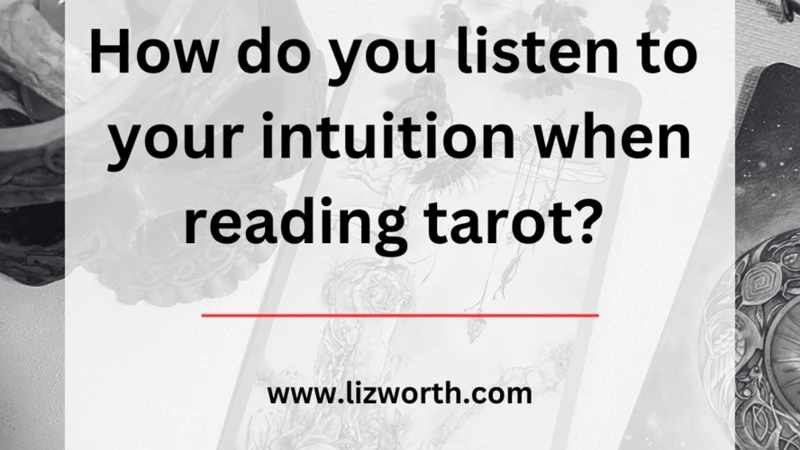
Understanding how intuition works requires diving into the intricate workings of the mind. The subconscious mind plays a pivotal role in intuition, processing vast amounts of information and experiences that may not be immediately accessible to our conscious awareness. It gathers subtle cues, patterns, and emotions, piecing them together to form a holistic understanding of a situation. This intuitive information then rises to our conscious mind as a “gut feeling” or an inner voice guiding our decision-making process. While there is no definitive scientific explanation for the mechanics of intuition, it is believed to be a combination of innate instincts, learned experiences, and subconscious processing. By developing intuitive abilities through practices such as meditation, mindfulness, and self-reflection, we can enhance our connection with our subconscious mind and tap into the power of intuition to navigate through life’s complexities.
2.1 The role of subconscious mind
The subconscious mind plays a crucial role in the workings of intuition. It is the vast reservoir of information and experiences that we have accumulated throughout our lives, often outside the realm of conscious awareness. Our subconscious mind processes and stores information that our conscious mind may not even be aware of. This wealth of information becomes the foundation for intuitive insights and nudges that arise within us. The subconscious mind has the ability to make connections, recognize patterns, and generate solutions to problems without conscious effort. This is why intuitive insights often seem to come out of nowhere, as if they were magically downloaded into our consciousness. By tapping into the power of the subconscious mind, we can access a wealth of knowledge and wisdom that can guide us in problem-solving. Through techniques such as meditation, visualization, and self-reflection, we can quiet the chatter of the conscious mind and allow the intuitive whispers from our subconscious to emerge. So, by understanding and harnessing the role of the subconscious mind, we can unlock the full potential of our intuition and make more informed decisions.
2.2 Developing intuitive abilities
Developing intuitive abilities is a process that involves honing and fine-tuning our innate capacity for intuition. There is no one-size-fits-all approach to developing intuitive abilities, as each individual’s journey is unique. However, there are several practices that can help cultivate and strengthen our intuitive powers. One effective method is meditation. By quieting the mind and connecting with our inner selves, we create a space for intuition to flourish. Regular meditation practice allows us to tune in to our intuition and receive guidance from our subconscious mind. Another valuable practice is mindfulness. Being fully present in the moment helps us develop a heightened awareness of our surroundings and internal cues, which are essential in recognizing and interpreting intuitive signals. Additionally, journaling and self-reflection can aid in developing intuitive abilities. Writing down our thoughts, feelings, and insights can provide clarity and reveal patterns or recurring themes that may offer valuable intuitive guidance. Engaging in creative activities such as painting, playing music, or dancing can also help unlock and strengthen our intuitive abilities. By engaging in these practices and remaining open to the intuitive messages that come our way, we can expand our intuitive skills and harness the power of intuition in problem-solving.
The Benefits of Intuition in Problem-Solving
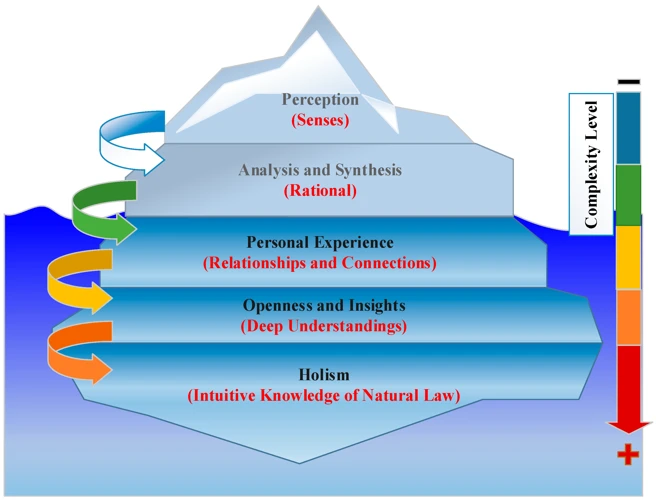
Intuition plays a pivotal role in problem-solving, offering a range of benefits that enhance our decision-making process. First and foremost, intuition provides us with enhanced decision-making skills. It allows us to tap into our inner wisdom and guidance, helping us make choices that align with our true desires and values. This intuitive insight often goes beyond what rational thinking can offer, providing a deeper understanding of the situation at hand. Additionally, intuition fuels creative problem-solving. When faced with complex challenges, our intuition can lead us to unconventional and innovative solutions that our logical mind may overlook. It opens up new possibilities and perspectives that expand our problem-solving capabilities. Moreover, intuition instills confidence and trust in oneself. By developing a strong intuitive connection, we become more self-assured in our abilities to navigate through uncertainty and make sound decisions. Trusting our intuition empowers us to step outside of our comfort zones and embrace growth and transformation. So, it’s clear that intuition is a valuable asset that can greatly enhance our problem-solving endeavors.
3.1 Enhanced decision-making skills
Enhanced decision-making skills are one of the key benefits of harnessing the power of intuition in problem-solving. When we tap into our intuitive abilities, we gain access to a wealth of information and insights that may not be immediately apparent through logical reasoning alone. Intuition allows us to consider factors beyond the surface level, taking into account our past experiences, emotions, and subtle cues from our surroundings. By incorporating intuition into our decision-making process, we can make choices that align with our true desires, values, and aspirations. This leads to more authentic and fulfilling outcomes in our personal and professional lives. Intuitive decision-making can help us navigate situations where the available information is limited or conflicting, enabling us to trust our inner guidance and make confident choices. By listening to our intuition, we can tap into our innate wisdom and make decisions from a place of deep understanding and clarity. So, the next time you find yourself facing a difficult decision, take a moment to quiet your mind and tap into your intuitive wisdom to unlock new insights and possibilities. To explore the role of intuition in decision-making further, you might also want to check out /exploring-link-intuition-psychic-abilities/.
3.2 Creative problem-solving
Creative problem-solving is one of the significant benefits of harnessing the power of intuition. When faced with complex problems or challenges, our logical thinking and analytical skills may not always provide the ideal solution. This is where intuition comes into play. By tapping into our intuitive abilities, we can think beyond the conventional and explore innovative perspectives and solutions. Intuition allows us to tap into our subconscious mind and access a wealth of knowledge and experiences that may not be readily available to our conscious mind. It helps us think outside the box and consider unconventional approaches that may lead to breakthrough solutions. Intuition ignites our creativity, enabling us to come up with novel ideas and perspectives that can transform the way we approach problem-solving. By embracing intuition, we unlock a world of possibilities and open ourselves to unique and imaginative solutions that we may not have considered otherwise. So, when confronted with a challenging problem, remember to trust your intuition and let your creative juices flow to find innovative and effective solutions.
3.3 Confidence and trust in oneself
Confidence and trust in oneself are essential aspects of harnessing the power of intuition in problem-solving. When we listen to our intuition and act upon it, we start building a sense of self-assurance and belief in our abilities. Confidence comes from recognizing that we have access to a deep well of wisdom within us, and trusting that this intuitive guidance can lead us in the right direction. It allows us to step out of our comfort zones, take calculated risks, and embrace uncertainty. By relying on our intuition, we develop a stronger sense of self-trust, knowing that we have the tools to navigate through challenges and make sound decisions. When we have faith in our intuition, we become more resilient and better equipped to handle difficult situations. Over time, this enhanced self-confidence spills over into various areas of our lives, helping us grow personally and professionally. Confidence and trust in oneself are intrinsically linked to intuition, making them integral components of effective problem-solving. So, embrace your inner guide and allow your intuition to bolster your self-belief and propel you towards success.
Ways to Cultivate and Strengthen Intuition
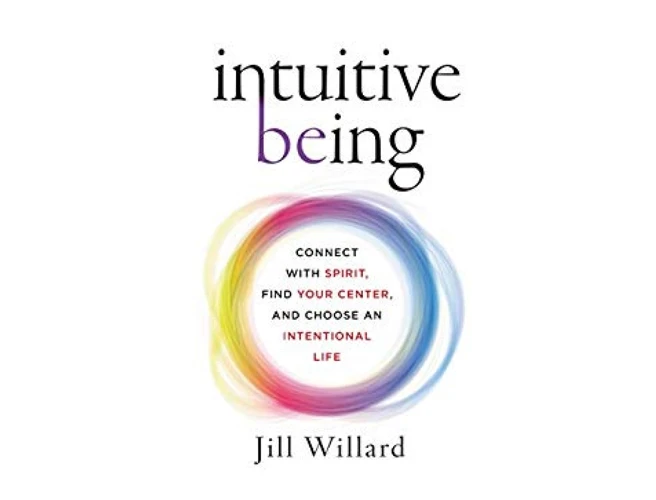
To cultivate and strengthen one’s intuition, there are various practices and techniques that can be incorporated into daily life. Listening to your gut feelings is a fundamental step in honing your intuitive abilities. Pay attention to the subtle nudges and sensations in your body when making decisions or navigating through challenges. Meditation and mindfulness practices also play a crucial role in quieting the mind and creating space for intuitive insights to arise. By grounding yourself in the present moment and cultivating inner stillness, you can access the wisdom of your intuition more easily. Additionally, journaling and self-reflection provide a means of exploring and understanding your inner thoughts, emotions, and patterns, allowing for greater clarity and self-awareness. Engaging in these practices on a consistent basis can help cultivate a deeper connection to your intuitive guidance and unleash its transformative power in problem-solving and decision-making. So, if you’re ready to embark on a journey of self-discovery and tap into the limitless potential of your intuition, explore these techniques and witness the magic unfold.
4.1 Listen to your gut feelings
One of the key ways to cultivate and strengthen your intuition in problem-solving is to listen to your gut feelings. Our gut, often referred to as our “second brain,” has a remarkable ability to sense and perceive information that is not readily available to our conscious mind. When faced with a decision or a problem, pay attention to how your body responds. Do you feel a sense of ease and lightness, or do you experience a heaviness or tightness in your gut? These physical sensations are often signals from your intuition, guiding you towards the right path. Listening to your gut feelings requires you to trust yourself and be open to the subtle messages that your body is sending you. It may feel uncomfortable at first, especially if you have been conditioned to rely solely on logic and rationality. However, as you practice tuning in to your gut feelings, you will begin to notice the valuable insights and guidance they provide. Reflect on past experiences where you followed your gut instinct and experienced positive outcomes. This will reinforce your trust in your intuition and encourage you to listen to it more frequently. So, embrace the wisdom of your gut feelings and let them be your compass on your problem-solving journey.
4.2 Meditation and mindfulness practices
Meditation and mindfulness practices are powerful tools for cultivating and strengthening intuition. Through these practices, individuals can quiet the noise of the mind and develop a deeper connection with their inner selves. Meditation allows us to enter a state of deep relaxation and inner stillness, making it easier to access our intuitive insights. By focusing on the present moment and observing our thoughts without judgment, we can create the space for intuitive guidance to arise. Practicing mindfulness not only enhances our awareness but also sharpens our ability to listen to our intuition. When we engage in mindful activities such as walking in nature, practicing yoga, or even eating mindfully, we become more attuned to the subtle signals and sensations within our body and mind. These practices also help us cultivate a sense of presence and openness, which are essential for receiving intuitive messages. For those who are interested in exploring the intersection between intuition and spirituality, meditation and mindfulness provide valuable pathways for deepening their connection with the intuitive realm. By incorporating these practices into our daily routine, we can create a state of inner calmness and receptivity that allows our intuition to flourish. So, set aside a few minutes each day for meditation or engage in mindful activities to nurture your intuitive abilities and tap into the wisdom within.
4.3 Journaling and self-reflection
Journaling and self-reflection are powerful practices that can strengthen your intuitive abilities and deepen your problem-solving skills. Keeping a journal allows you to document your thoughts, feelings, and experiences, providing a valuable space for self-expression. By regularly journaling, you create an opportunity to observe patterns, identify recurring themes, and gain insights into your own thought processes. When it comes to intuition, journaling can be particularly helpful in recognizing and understanding the signals and messages your intuition sends. You can use your journal to record any intuitive hunches, gut feelings, or synchronicities you experience. Reflecting on these entries can help you uncover hidden connections and uncover patterns that may guide your problem-solving process.
Additionally, self-reflection plays a significant role in developing intuition. Taking time for introspection allows you to examine your emotions, beliefs, and past experiences, ultimately gaining a deeper understanding of yourself. When you engage in self-reflection, you can become more aware of any biases, fears, or limiting beliefs that may prevent you from fully trusting your intuition. It provides an opportunity to address any doubts or insecurities that may arise when relying on your intuitive guidance. By practicing self-reflection, you cultivate a sense of self-awareness and inner clarity, which are essential for honing your intuition.
To enhance the effectiveness of journaling and self-reflection, consider establishing a regular practice. Set aside dedicated time each day or week to write in your journal and engage in self-reflection. Find a quiet and comfortable space where you can freely express your thoughts and emotions. Remember, this is a personal journey, so trust the process and be open to what emerges. Through journaling and self-reflection, you can tap into the depth of your intuition and unlock a wellspring of wisdom and guidance.
You can also explore other practices that integrate journaling and self-reflection, such as connecting intuition with spirituality.
Intuition in Action: Real-Life Examples

1. Bill Gates and Microsoft: Back in the early days of Microsoft, Bill Gates and his team were faced with a critical decision. They had to choose between adopting the IBM operating system or developing their own. Despite the risks involved, Gates followed his intuition and decided to develop their own operating system. This intuition-driven decision turned out to be a game-changer, catapulting Microsoft to become one of the most successful tech companies in the world.
2. Steve Jobs and Apple: Steve Jobs was renowned for his reliance on intuition in the product development process. When designing the first Macintosh computer, he insisted on including a graphical user interface and a mouse, despite opposition from his team. Jobs trusted his intuition and believed that these features would revolutionize the way people interacted with computers. The result was a groundbreaking product that revolutionized the personal computer industry and laid the foundation for Apple’s success.
3. Oprah Winfrey and Career Choices: Oprah Winfrey, in her career journey, has openly acknowledged the role of intuition in her decision-making process. When she made the transition from traditional news reporting to hosting her own talk show, many advised against it. However, Oprah trusted her intuition and felt that hosting a talk show was her true calling. This leap of faith led to the creation of “The Oprah Winfrey Show,” which became one of the most successful and impactful television programs of all time.
4. George Lucas and Star Wars: George Lucas, the creator of Star Wars, relied heavily on his intuition throughout the development of the iconic film franchise. Despite initial doubts and financial constraints, Lucas followed his intuition and stayed true to his vision. This led to the creation of a cultural phenomenon that has influenced generations and become one of the highest-grossing franchises in history.
These real-life examples highlight the power of intuition in various fields and demonstrate how trusting one’s inner guidance can lead to remarkable outcomes. Whether it’s in technology, entertainment, or personal decisions, listening to and acting upon intuition can be a catalyst for innovation, success, and personal fulfillment.
Intuition vs. Rational Thinking: Finding the Balance
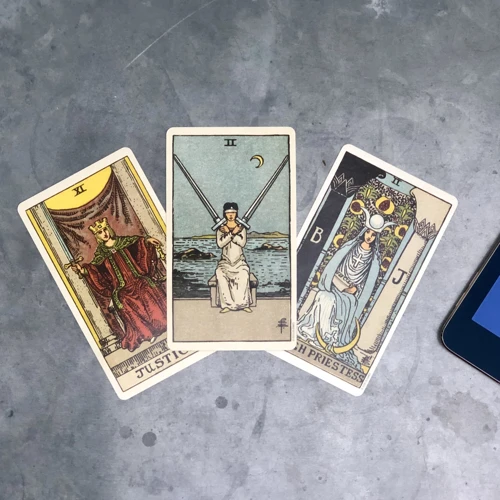
In the realm of decision-making, there has long been a debate between intuition and rational thinking. While rational thinking relies on logical analysis and evidence-based reasoning, intuition taps into our inner knowing and instinctive feelings. Both intuition and rational thinking have their strengths and weaknesses, and finding the right balance between the two is key. Rational thinking allows for methodical and systematic problem-solving, considering all available information and potential outcomes. Intuition, on the other hand, can provide quick insights and a broader perspective that may not be immediately obvious through logical reasoning alone. By combining the analytical powers of rational thinking with the intuitive wisdom of our inner guide, we can make more holistic and well-informed decisions. It is important to recognize that intuition and rational thinking are not opposing forces, but rather complementary tools that can work together to enhance our problem-solving abilities.
6.1 The role of logic and analysis
The role of logic and analysis is crucial when it comes to decision-making and problem-solving. While intuition provides valuable insights and guidance, it should not completely disregard the importance of logical reasoning. Logic and analysis help us to think critically, evaluate various options, and assess potential risks and outcomes. By analyzing the available data and applying logical principles, we can make informed decisions based on evidence and facts. Rational thinking allows us to weigh the pros and cons, consider the implications, and identify any possible biases or assumptions that may be clouding our judgment. It helps us to navigate complex situations and arrive at well-reasoned solutions. However, it is important to strike a balance between logic and intuition. While logic provides a structured framework, intuition adds a deeper layer of insight and creativity. By integrating both, we can leverage the strengths of each approach and make more well-rounded and holistic decisions. So, in problem-solving, the role of logic and analysis is to complement and support our intuitive guidance, resulting in more effective and well-rounded solutions.
6.2 Integrating intuition and rationality
Integrating intuition and rationality is all about finding the right balance between these two different modes of thinking. While intuition is deeply connected to our subconscious mind and relies on instinctual understanding, rationality takes a logical and analytical approach. The key is to recognize that both intuition and rationality have their merits and limitations, and when combined, they can enhance problem-solving and decision-making processes.
To integrate intuition and rationality effectively, it’s important to start by acknowledging the value of each approach. Intuition can offer insights, creativity, and a sense of knowing that logic alone may not provide. On the other hand, rationality brings structure, critical thinking, and evidence-based reasoning to the table. One way to achieve integration is by considering intuitive insights as hypotheses or initial ideas that can be tested and validated using rational analysis. This allows for a more comprehensive evaluation of options and reduces the risk of solely relying on gut feelings without any grounding.
Another strategy for integrating intuition and rationality is to use them in parallel during the decision-making process. This means actively engaging both your intuitive sense and logical thinking. For instance, you can start by gathering and analyzing relevant data using rationality, and then consult your intuition to see if any intuitive insights align with the information gathered. It’s important to engage in self-reflection and be aware of any cognitive biases that may interfere with the decision-making process.
Improving communication between the intuitive and rational aspects of your mind is also crucial. Take the time to listen to your intuition without dismissing it automatically, and similarly, question and challenge your rational thinking to ensure it is not limited by rigid assumptions or biases. Creating a harmonious relationship between intuition and rationality takes practice and self-awareness, but it can lead to more well-rounded and effective problem-solving outcomes. Embracing both approaches allows you to benefit from the wisdom of your intuition while grounding it in logical reasoning and evidence.
Trusting Your Intuition: Overcoming Doubt and Fear
Trusting your intuition is easier said than done, especially when doubt and fear creep in. Doubt is a common obstacle that can undermine our confidence in the validity of our intuitive insights. We may question whether our gut feelings are merely irrational impulses or if they truly hold wisdom. Overcoming this doubt requires recognition and acceptance of the intuitive signals we receive, trusting that they are based on our accumulated knowledge and experiences. Additionally, fear can paralyze us and prevent us from acting on our intuition. Fear of failure or making the wrong decision can lead us to rely solely on rational thinking, disregarding our intuitive guidance. It is essential to confront and challenge these fears, understanding that intuition is a valuable tool in problem-solving and decision-making. By cultivating self-belief and embracing the unknown with an open mind, we can overcome doubt and fear, allowing our intuition to guide us towards the best outcomes.
7.1 Recognizing and managing self-doubt
Recognizing and managing self-doubt is a crucial step in learning to trust your intuition. Self-doubt can arise when we question the validity of our intuitive insights or fear making a wrong decision. It can leave us feeling uncertain and hesitant to follow our inner guidance. However, it is important to remember that self-doubt is a common experience that many people face on their journey of self-discovery and intuitive development. To overcome self-doubt, it is necessary to recognize it when it arises and acknowledge it as a normal part of the process. One effective way to recognize self-doubt is through self-awareness and mindful observation of our thoughts and emotions. By paying attention to the thoughts and beliefs that trigger self-doubt, we can begin to challenge and reframe them. Practicing self-compassion and cultivating a supportive inner dialogue is another important aspect of managing self-doubt. Instead of berating ourselves for doubting, we can offer ourselves kindness and understanding, reminding ourselves that it is okay to have doubts and that learning to trust our intuition is a gradual process. Lastly, seeking support from /the-power-of-intuition-in-problem-solving-unlocking-your-inner-guide/others who have experienced similar struggles can be incredibly helpful. Connecting with like-minded individuals or joining a community of individuals on a similar path can provide encouragement, guidance, and validation in overcoming self-doubt and trusting our intuition.
7.2 Overcoming fear of failure
7.2 Overcoming Fear of Failure
Overcoming the fear of failure is crucial when it comes to trusting your intuition in problem-solving. The fear of failure can be paralyzing, preventing us from taking risks or making important decisions. However, by acknowledging and addressing this fear, we can empower ourselves to embrace our intuition and make bold choices. Here are some strategies to help overcome the fear of failure:
1. Reframe failure as a learning opportunity: Instead of viewing failure as a negative outcome, reframe it as an opportunity for growth and learning. Remember that some of the greatest successes have emerged from initial failures. Embrace failure as a stepping stone on your path to success.
2. Set realistic expectations: Often, we fear failure because we set unrealistic expectations for ourselves. By setting realistic goals and understanding that setbacks are natural and part of the learning process, we can reduce the fear associated with failure.
3. Celebrate small successes: Recognize and celebrate the small victories along the way. By acknowledging your progress, you build confidence and resilience, which can help alleviate the fear of failure.
4. Practice self-compassion: Be kind and compassionate towards yourself. It is essential to remember that failure does not define your worth or capabilities. Treat yourself with understanding and gentleness, just as you would treat a close friend.
5. Visualize success: Visualize yourself successfully overcoming obstacles and achieving your goals. By visualizing positive outcomes, you can train your mind to focus on success rather than dwell on the fear of failure.
6. Take small steps: Break down big challenges or decisions into smaller, manageable steps. By taking incremental actions, you build momentum and confidence, reducing the fear associated with taking significant risks.
Remember, overcoming the fear of failure is a journey that requires patience and self-compassion. Embracing failure as a natural part of growth and trusting your intuition can lead to incredible personal and professional breakthroughs. So, take that leap with confidence, knowing that failure is not the end, but a stepping stone towards success.
Conclusion
In conclusion, the power of intuition in problem-solving is undeniable. It is a valuable tool that can help us navigate challenges, make better decisions, and tap into our innate wisdom. Throughout this article, we have explored the concept of intuition, understanding its definition and importance in problem-solving. We have also discussed how intuition works, highlighting the role of the subconscious mind and ways to develop and strengthen our intuitive abilities. Furthermore, we have examined the benefits of intuition in problem-solving, including enhanced decision-making skills, creative problem-solving, and increased confidence in oneself. Additionally, we have explored various methods to cultivate and nurture intuition, such as listening to gut feelings, practicing meditation and mindfulness, and engaging in journaling and self-reflection. We have also discussed real-life examples of intuition in action and explored the balance between intuition and rational thinking. Lastly, we addressed the challenges of trusting one’s intuition, including managing self-doubt and overcoming the fear of failure. By embracing and honing our intuition, we can unlock our inner guide and tap into a limitless source of wisdom. So, trust yourself, listen to your intuition, and let it guide you on your journey towards problem-solving and self-discovery.
Frequently Asked Questions
1. What role does intuition play in decision-making?
Intuition plays a crucial role in decision-making as it provides valuable insights and guidance beyond rational analysis. It can help us consider factors that may not be immediately evident and guide us towards choices that align with our deepest values and desires.
2. Can intuition be developed and strengthened?
Yes, intuition can be developed and strengthened. By actively paying attention to our intuition, practicing mindfulness, and engaging in activities like meditation and journaling, we can nurture our intuitive abilities and sharpen our intuition over time.
3. How can I differentiate between intuition and fear-based thoughts?
Differentiating between intuition and fear-based thoughts can be challenging. However, intuition usually comes from a place of calm and clarity, whereas fear-based thoughts tend to be accompanied by anxiety and doubt. Trusting your gut feelings and examining the underlying emotions can help you discern between the two.
4. Can intuition be relied upon solely for decision-making?
While intuition is a powerful tool, relying solely on it for decision-making may not always be practical. It is important to balance intuition with rational thinking, gathering information, and considering logical factors to make well-informed decisions.
5. Are there any techniques to enhance intuitive abilities?
Yes, there are several techniques to enhance intuitive abilities. These include meditation, regular mindfulness practices, connecting with nature, journaling, and engaging in activities that stimulate creativity and imagination.
6. Can intuition be trusted over expert advice or analysis?
Intuition can provide valuable insights and guidance, but it should not completely override expert advice or analysis. It is beneficial to consider a combination of both, utilizing the expertise of others while also listening to and trusting your own intuition.
7. Is intuition the same as a gut feeling?
While intuition and gut feelings are related, they are not exactly the same. Gut feelings often refer to instinctive reactions or bodily sensations that can give us important information. Intuition, on the other hand, is a deeper sense of knowing that goes beyond immediate physical sensations.
8. Can intuition help in solving complex problems?
Absolutely! Intuition can be particularly valuable in solving complex problems. It can bring forth unexpected insights or creative solutions that may have been overlooked through conventional problem-solving methods.
9. Can I enhance my intuitive abilities through dream analysis?
Dream analysis can be a helpful tool in enhancing intuitive abilities. Our dreams often contain symbols, messages, and insights that can offer valuable guidance and tap into our subconscious wisdom.
10. Can intuition be developed in professional settings, such as business?
Yes, intuition can be developed and utilized in professional settings, including business. Many successful leaders and entrepreneurs rely on their intuitive abilities to make strategic decisions, navigate uncertainty, and identify opportunities.

